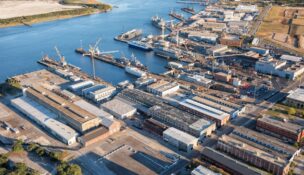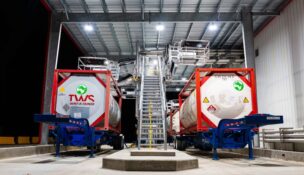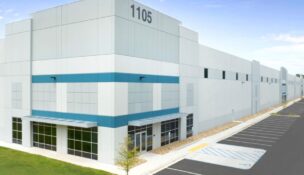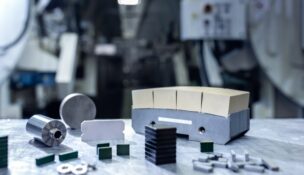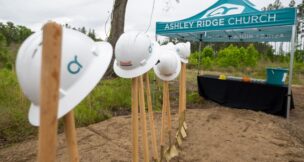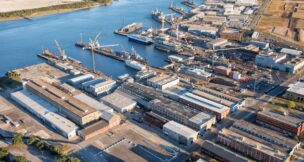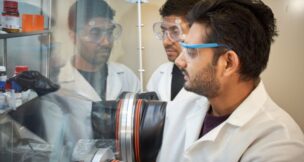Company with Tesla ties to build $3.5B facility in Berkeley County
Christina Lee Knauss //December 14, 2022//
Company with Tesla ties to build $3.5B facility in Berkeley County
Christina Lee Knauss //December 14, 2022//

This story has been updated.
Redwood Materials, a producer of anode and cathode battery components, will invest $3.5 billion to establish operations in Berkeley County, the largest economic development announcement in South Carolina history. The investment announced Wednesday will create 1,500 new jobs.
“Redwood Materials’ record-breaking announcement shows that our state’s strategic plan to remain a top destination for automobile manufacturers and their suppliers as the industry innovates is working,” said Gov. Henry McMaster. “This is a transformative accomplishment.”
Redwood Materials, headquartered in Carson City, Nev., was founded by Tesla’s former chief technology officer and co-founder, JB Straubel. Its South Carolina campus will be used to create a circular supply chain for electric vehicles, according to a news release. The company will onshore production of the anodes and cathodes for batteries to drive down costs and emissions. All battery components will be built from as much recycled material as possible, the company said.
McMaster and Straubel were joined by leaders from the Charleston area and around the state at a special event to announce the new facility Wednesday morning, held onsite at the Camp Hall Commerce Park in Ridgeville where Redwood’s new “Carolina campus” will be located on more than 600 acres.
Berkeley County Supervisor Johnny Cribb said the area is “absolutely blessed” to have the project because of what it means for the county’s future.
“I was born and raised near here and remember years ago when the Navy shipyard closed and what that did to a lot of people around here,” Cribb said. “It’s great to see where we are today and it’s wonderful when companies like this come knocking and offer something like this. We’re excited about the opportunities this is going to bring to the county and to surrounding areas.”
Straubel said he and other Redwood officials first started looking at the Berkeley County site a year ago, and noted several things that came together to convince them that the Charleston area was the right place to put the new facility. He said Berkeley County is in the middle of a multi-state area that experts in the field are calling the “battery belt” because so many new facilities for EV battery manufacturing are being built here.
“South Carolina’s commitment to creating a secure energy future and a competitive landscape for electric vehicle manufacturing, supported by a world-class workforce, fast and efficient logistics, zero-carbon electricity and a phenomenal site made it a smart decision for Redwood to invest here,” Straubel said.
The Redwood founder said he first got interested in the intricate process of building EV batteries during his time at Tesla. He stressed the importance of facilities like the Berkeley County one as the need for batteries grows.
“At Tesla, I had a front row seat to the challenges and opportunities we’re facing as the world electrifies,” he told the crowd. “It is going to be critical to be able to deal with supply chain bottlenecks, and that’s what we’re going to be doing here. We want to develop a fully closed loop supply chain here where we will be transforming batteries from other kinds of technology into a form that can be used again.”
Straubel said the need to find ways to source and build batteries in the United States is crucial for many reasons, including a staggering economic cost of relying on overseas materials. He said U.S. battery manufacturers will spend an estimated $150 billion overseas by 2030.
“Anodes and cathodes are the most expensive parts of a battery and currently they have to be sourced mostly from Asia through a 50,000-mile, vulnerable supply chain. What we’ll be doing here will drive down costs, and lessen both emissions and the geopolitical risk involved,” Straubel said.
Straubel also noted that Redwood’s commitment to sustainability will be carried out in operations of the plant itself, which will be fully electric without reliance on natural gas or any other fossil fuels.
Once fully operational, the campus will provide an estimated 100 gigawatts of cathode and anode components a year, enough to power more than 1 million EVs, company officials said.
Groundbreaking for the new facility will take place in the first quarter of 2023, and the first recycling processes should be up and running by the end of that year, Straubel said.






